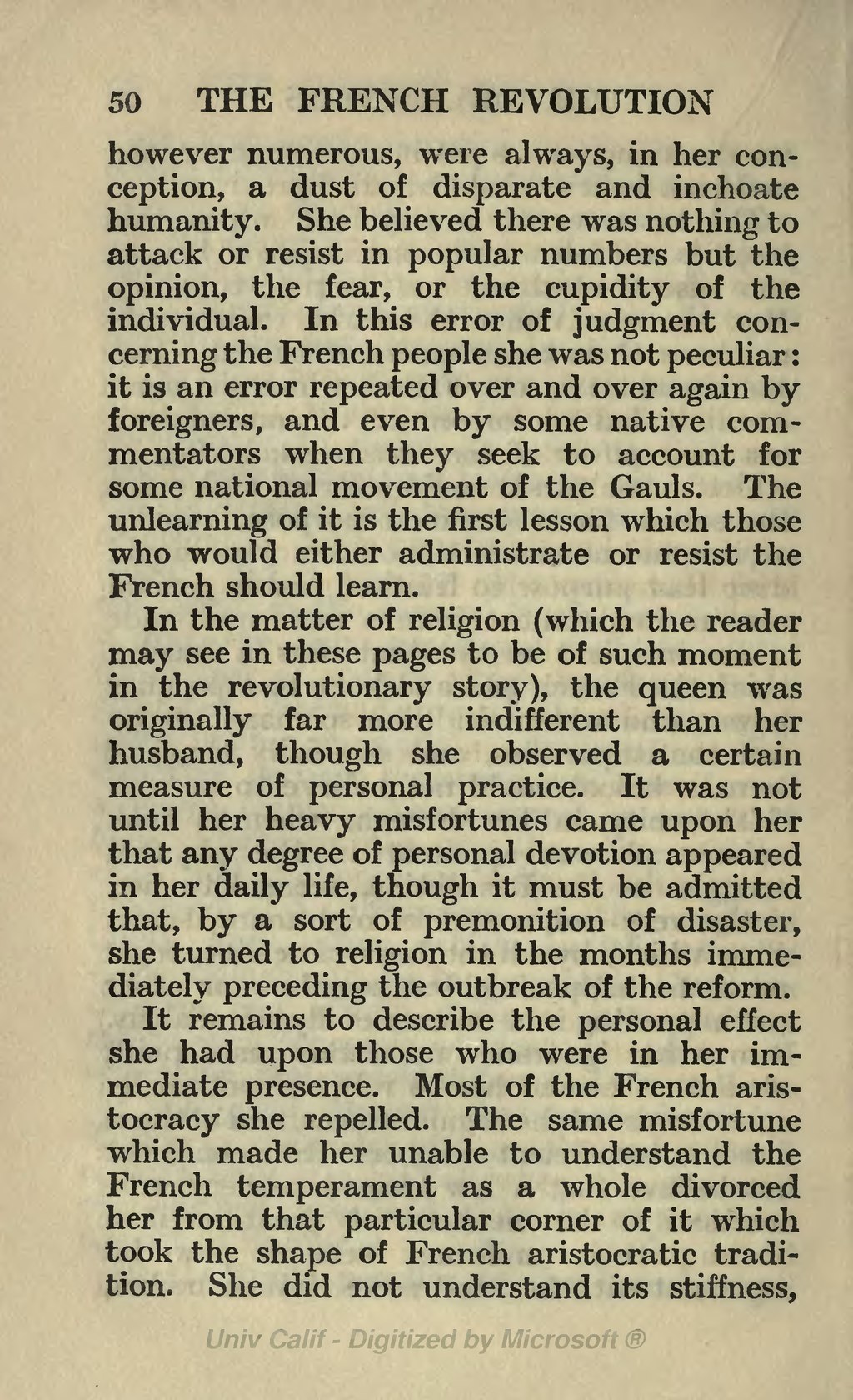however numerous, were always, in her conception, a dust of disparate and inchoate humanity. She believed there was nothing to attack or resist in popular numbers but the opinion, the fear, or the cupidity of the individual. In this error of judgment concerning the French people she was not peculiar: it is an error repeated over and over again by foreigners, and even by some native commentators when they seek to account for some national movement of the Gauls. The unlearning of it is the first lesson which those who would either administrate or resist the French should learn.
In the matter of religion (which the reader may see in these pages to be of such moment in the revolutionary story), the queen was originally far more indifferent than her husband, though she observed a certain measure of personal practice. It was not until her heavy misfortunes came upon her that any degree of personal devotion appeared in her daily life, though it must be admitted that, by a sort of premonition of disaster, she turned to religion in the months immediately preceding the outbreak of the reform.
It remains to describe the personal effect she had upon those who were in her immediate presence. Most of the French aristocracy she repelled. The same misfortune which made her unable to understand the French temperament as a whole divorced her from that particular corner of it which took the shape of French aristocratic tradition. She did not understand its stiffness,

